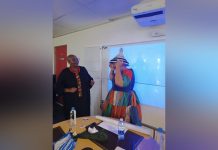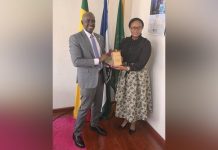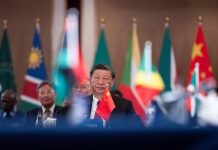Africa-Press – Lesotho. Care for Basotho Association Director Motšeoa Senyane says the fact that Lesotho keeps suffering the same political problems that come in different forms time and again brings up a question of whether Lesotho’s democracy is
based on “proper” foundation or otherwise. “We have a weak and fragile democracy. We can’t be suffering same problems. It only shows that the foundation of our democracy is weak,” she said.
The issue of Lesotho’s democracy is one of several areas Senyane raised as concerning and would require African Development Bank (AfDB) to chip in and
assist Lesotho as a country. She was speaking at the Lesotho Council of Non-Governmental Organizations (NGOs) and African Development bank (AfDB) consultative meeting at Transformation Resource Centre (TRC) hall on Thursday.
The meeting aimed at providing feedback and input for Lesotho’s priorities for the new strategic development paper. LCN raised several priority areas on which AfDB
‘can offer help’ to Lesotho. She went on to cite that climate change is another problem
that has hit Lesotho and impacted negatively on food security. Therefore she said Climate-smart solutions should be put in place among other measures to solve poor agriculture in the country.
“It is important for the bank to realize that food security is going to be the issue
of conflict in the future. We are worried of stunting and we can’t have a vibrant nation that would be economically active if this issue is not addressed,”
insisted Senyane going on to state that food security should be at the core of all development issues in the country. Meanwhile AfDB group Director General Josephine Ngure cited that AfDB has formulated a civil
society engagement framework document designed to assist with the determination of the best way to engage with important stakeholders in the country through
civil society organizations (CSOs). Through leveraging on CSOs cooperative advantage in terms of local expertise, data collection, knowledge and proximity on the ground, the bank can design projects
based on real needs, maximize the impact on population and increase ownership within communities. These she said, are crucial to ensure inclusivity and sustainability of development programs.






